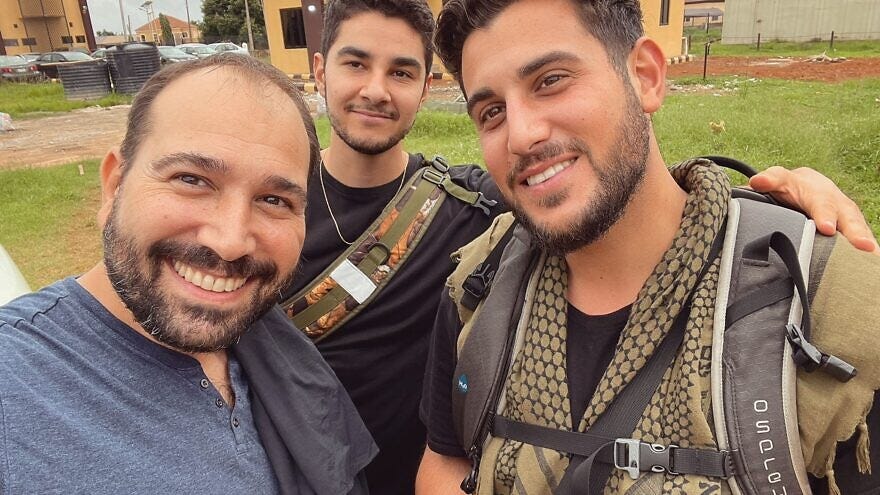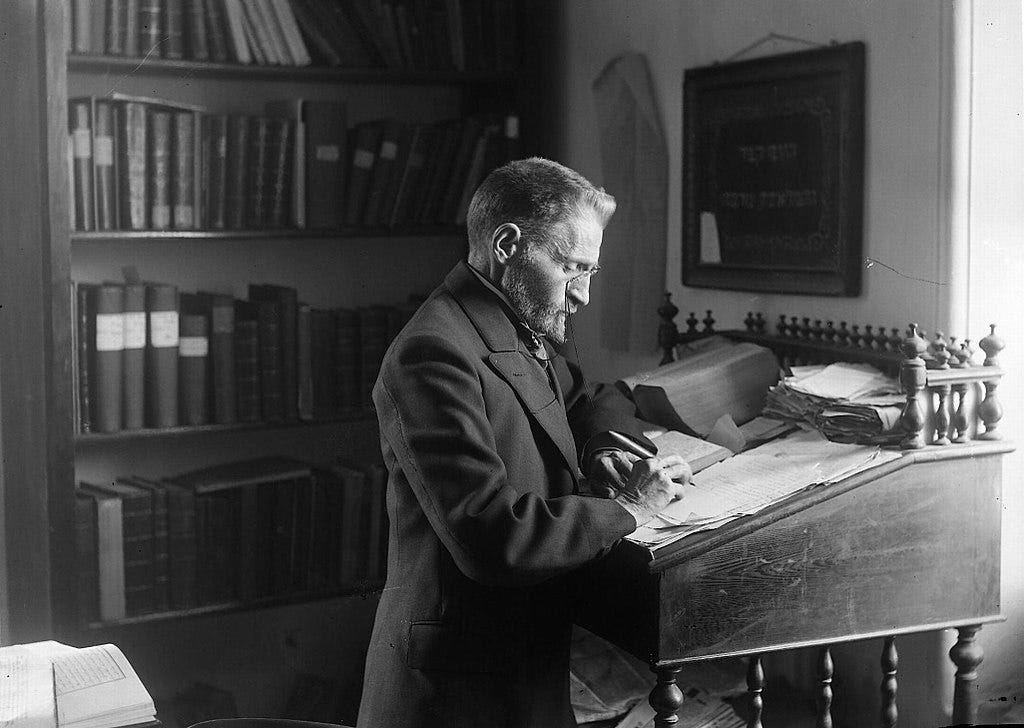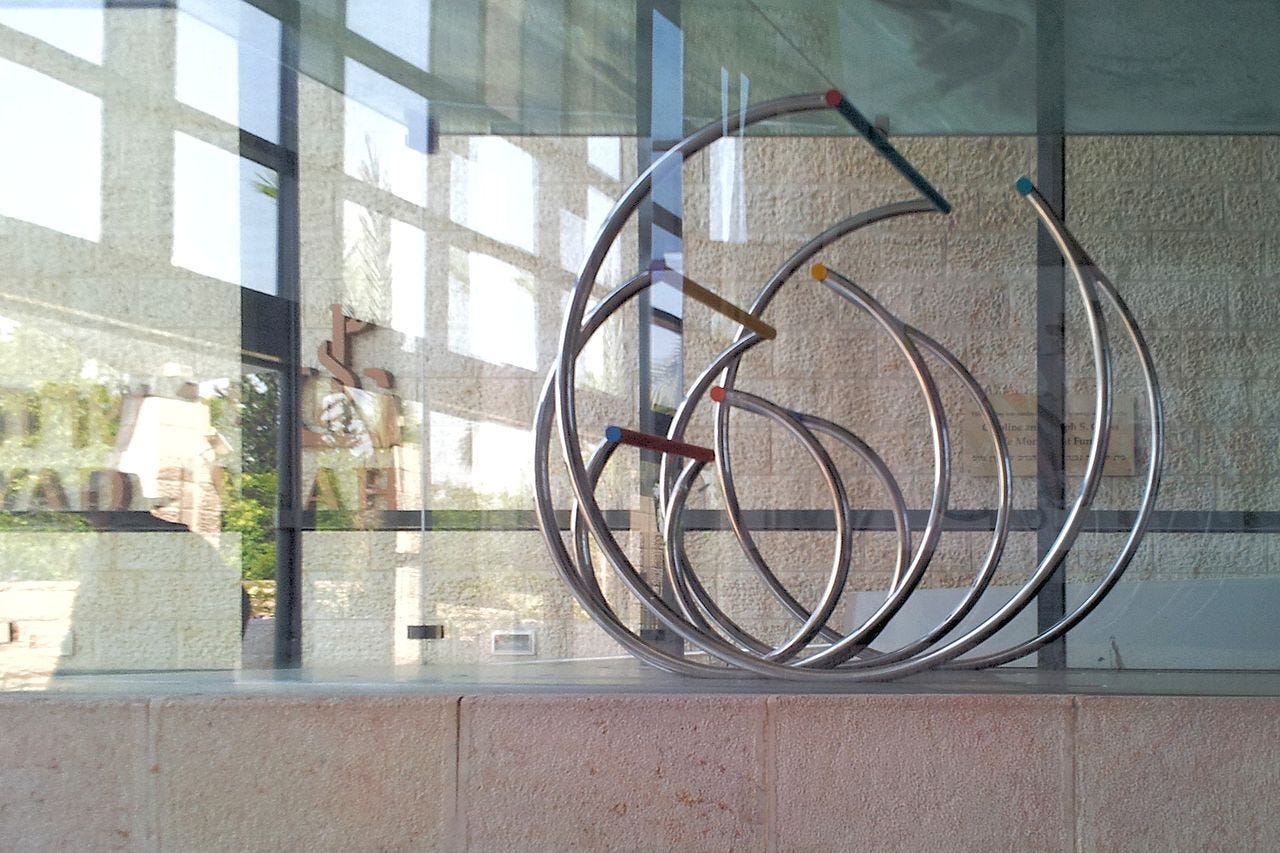5 Ways to Get Closer to Israel Right Now
Deepening your connection to Israel from anywhere in the world has never been easier or better.
Please consider supporting our mission to help everyone better understand and become smarter about the Jewish world. A gift of any amount helps keep our platform free of advertising and accessible to all.
You can also listen to the podcast version of this essay on Apple Podcasts, YouTube Music, YouTube, and Spotify.
Israel is not just a place on a map; it is a whirlwind of history, innovation, and chutzpah that’s larger than life.
It’s a country where ancient ruins share the skyline with cutting-edge tech startups, and where arguments over the best hummus in town are practically a national sport.
If you’ve ever felt a yearning to connect more deeply with Israel, whether out of curiosity, heritage, or sheer admiration for a nation that knows how to do more with less, you are in the right place. Let’s explore five approachable, insightful, and sometimes cheeky ways to get closer to the Land of Milk and Honey.
1) Visiting Virtually
During the pandemic, an interesting trend emerged: Israeli tour guides started taking to YouTube in impressive ways. And this trend has blossomed into a treasure trove of video tours showcasing everything from the mystical alleys of Safed to the sunlit shores of Eilat. These guides bring their encyclopedic knowledge and unmistakable passion right into your living room.
Plus, here’s a fun fact: Being a tour guide in Israel isn’t just a job; it’s a calling. Tour guides are often seen as cultural ambassadors, shaping countless visitors’ first impressions of the country. It’s no wonder they’re among the most respected professionals in Israel — after all, they can make history, geography, and even geology feel like a gripping drama.
2) Engaging With Israeli Culture
To understand Israel, you need to experience its culture, and I’m not just talking about devouring shawarma. (Although, yes, definitely devour shawarma.)
Consider watching classic Israeli films and TV shows like “Fauda” or “Waltz with Bashir” for gripping narratives. Read books (translated into English) by Amos Oz or Etgar Keret for a literary glimpse into the Israeli psyche. And if music is your thing, dive into the soulful sounds of Idan Raichel or the high-energy beats of Israeli pop.
Don’t forget to explore Israeli art, which is as diverse and dynamic as the country itself. Israeli artists like Yaacov Agam, known for his innovative optical art, or Michal Rovner, who uses multimedia to explore themes of identity and conflict, provide fascinating perspectives on the country's complex identity.
Israeli art galleries and museums, such as the Tel Aviv Museum of Art, are home to a wide range of contemporary and traditional works that reflect Israel’s rich cultural tapestry — and all of them have social media accounts that you can follow.
3) Staying Connected
Israel is often in the headlines, but the coverage can be as complex and layered as a Jerusalem mixed grill. To get closer to Israel, engage with a variety of news sources to understand its challenges, achievements, and day-to-day realities. Follow outlets like the Times of Israel (politically center-Left), The Jerusalem Post (center-Right), and Ynet News (center).
But don’t stop there. Go beyond the headlines and current events by following Israeli and Israel-based influencers and thought leaders, such as these examples:
Rudy Rochman is a prominent advocate for Jewish rights, often speaking at college campuses and pro-Israel organizations.
Noa Tishby is an Israeli activist, actress, model, producer, and writer.
Eylon Levy, a British-Israeli figure who served as the official Israeli government spokesman during the Israel–Hamas war from the beginning of 2023 until March 2024, when he was suspended.
Emily Schrader is an American-born Israeli journalist and social activist.
Yoseph Haddad is an Arab-Israeli journalist and advocacy activist for Israel.

4) Learning Hebrew
Hebrew is the official language of the State of Israel, the only Canaanite language still spoken today, and serves as the one truly successful example of a dead language that has been revived. But pre-State Zionists weren’t convinced that Hebrew should be the country’s official language.
For example, the great Zionist thinker Theodor Herzl initially opposed the adoption of Hebrew (then being revived by Eliezer Ben-Yehuda) as the state’s official language. Writing in his pamphlet, The Jewish State, Herzl argued:
“We cannot converse with one another in Hebrew. Who amongst us has a sufficient acquaintance with Hebrew to ask for a railway ticket in that language? Such a thing cannot be done.”
Herzl also rejected the use of Yiddish, which many European Jews spoke at the time, calling for Jews to “give up using those miserable stunted jargons, those Ghetto languages which we still employ, for these were the stealthy tongues of prisoners.”
Instead, Herzl supported the idea of a multilingual “federation of tongues” in which Jews could retain the language with which they felt most comfortable, citing Switzerland (which has four official languages) as an example of the idea’s viability.
And the Technion – Israel Institute of Technology — which was established 36 years before the founding of the State of Israel, and is now considered the MIT of the Middle East — was originally administered in German.
After it was finally decided that Hebrew would be Israel’s official language, there was an aggressive push to teach spoken, everyday Hebrew. Israel’s military, the Israel Defense Forces, became the impetus for many expressions and slang terms that become mainstream across the country.
Many words in modern-day Hebrew came from Aramaic, a Semitic language that originated among the Arameans in the ancient region of Syria. For more than 3,000 years, Aramaic served as the talk of the town for ancient kingdoms and empires, as well as the language of divine worship and religious study. And it was one of the most significant Jewish languages, eventually transitioning into Hebrew.
Nowadays, the words “mother” and “father” used in Hebrew today — ima and aba — are in fact Aramaic words. (The Hebrew word for father is av, and eim for mother.) The word bar in Bar Mitzvah is also Aramaic, meaning “son” (whereas the Hebrew word for “son” is ben).
Also, here’s another fun fact for you: The word abracadabra originated from Aramaic, meaning: “I create as I speak.”
The great teaching of the Mishnah (the Oral Torah) asks, “Who is rich?” and then answers: “Those who rejoice in their own lot.” And when Leah, wife of the patriarch Jacob, had her fourth child, she named him Yehuda, which means “I am grateful,” to reflect her gratitude to God for the gift of another son. The name Yehuda is the source, the root, of the Hebrew word for Jews (Yehudim), revealing the direct connection between Judaism and gratitude.

5) Bringing Israel Into Your Home
They say the way to a person’s heart is through their stomach, and Israel proves it. Try cooking Israeli dishes like shakshuka1, sabich2, or kubbeh3 soup. Pair it with a glass of Israeli wine from the Golan Heights or a craft beer brewed in Tel Aviv.
And don’t forget dessert: Baklava and halva will seal the deal.
There is also a growing variety of Israeli wines, and the emergence of Israeli wine is a story of revitalization, innovation, and cultural pride. While Israel has a long history of wine production dating back to biblical times, it was only in the late 20th century that Israeli wine began to gain international recognition for its quality.
The modern wine industry in Israel began to take shape in the 1980s, thanks in part to a renewed interest in winemaking and the efforts of a new generation of Israeli winemakers who sought to combine ancient traditions with modern techniques.
The early 1990s marked a turning point when several wineries began to focus on high-quality, small-batch wines using both local and international grape varieties. The Golan Heights Winery, established in 1983, was one of the pioneers in this movement, producing wines that quickly garnered attention.
By experimenting with cooler climate zones in regions like the Golan Heights, winemakers found that the conditions were ideal for producing world-class wines. Other wineries, such as Carmel and Tishbi, also embraced this shift toward quality-focused production, leading to a wave of innovation in the industry.
Today, Israeli wines are recognized globally for their distinctive flavors, rich history, and impressive quality. The country’s diverse terroir, from the Mediterranean coast to the cooler, mountainous regions in the north, offers a range of climates and soil types that contribute to a wide variety of wine styles.
Israeli winemakers are known for their experimentation, blending both classic varietals like Cabernet Sauvignon, Merlot, and Chardonnay with unique local grapes such as Carignan and Argaman. The innovation in the vineyards is matched by a new generation of sommeliers and wine experts who are helping to elevate the reputation of Israeli wine on the international stage.
What’s more, consider celebrating Israeli holidays to feel the rhythm of its calendar. Light candles for Hanukkah, build a sukkah for Sukkot, or simply pause to reflect on the meaning of Israel Independence Day. By aligning with Israel’s traditions, you can bring a bit of its spirit into your life.
A dish of eggs poached in a spicy tomato sauce with onions, peppers, and spices
A pita or laffa bread sandwich that originated in Israel in the 1960s, and is made with fried eggplant, hard-boiled eggs, chopped salad, parsley, amba, and tahini sauce
A dish of dumplings or croquettes that originated in Iraqi Jewish and Assyrian communities and is popular in the Levant and the Arab world





יפה מאד! כל הכבוד!
Your wonderful writing brings such vivid imagery to mind that I can almost feel myself walking the streets of Eretz Yisrael alongside my family. Your words have a way of bridging the distance, making me feel closer to them and the beautiful (challenging, but beautiful) life they live there. Thank you for sharing your talent and heart—it truly means so much.
As an 87 year old woman, I can do very little for Israel. I have supported the Israeli wine industry for many years - both dry red and white - even when it was not the finest vintage. I buy a case at a time from an Israeli wine merchant - free delivery - and bypass the Canadian government’s wine stores.